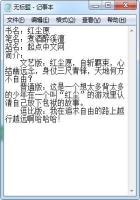"Please read this letter, Mr. Jennings," said Carl.
His employer took the letter from his hand, and ran his eye over it.
"Do you wish to ask my advice about the investment?" he said, quietly.
"No, sir. I wanted to know how such a letter came to be written to me."
"Didn't you send a letter of inquiry there?"
"No, sir, and I can't understand how these men could have got hold of my name."
Mr. Jennings looked thoughtful.
"Some one has probably written in your name," he said, after a pause.
"But who could have done so?"
"If you will leave the letter in my hands, I may be able to obtain some information on that point."
"I shall be glad if you can, Mr. Jennings."
"Don't mention to anyone having received such a letter, and if anyone broaches the subject, let me know who it is."
"Yes, sir, I will."
Mr. Jennings quietly put on his hat, and walked over to the post office. The postmaster, who also kept a general variety store, chanced to be alone.
"Good-evening, Mr. Jennings," he said, pleasantly. "What can I do for you?"
"I want a little information, Mr. Sweetland, though it is doubtful if you can give it."
Mr. Sweetland assumed the attitude of attention.
"Do you know if any letter has been posted from this office within a few days, addressed to Pitkins & Gamp, Syracuse, New York?"
"Yes; two letters have been handed in bearing this address."
Mr. Jennings was surprised, for he had never thought of two letters.
"Can you tell me who handed them in?" he asked.
"Both were handed in by the same party."
"And that was----"
"A boy in your employ."
Mr. Jennings looked grave. Was it possible that Carl was deceiving him?
"The boy who lives at my house?" he asked, anxiously.
"No; the boy who usually calls for the factory mail.
The nephew of your bookkeeper I think his name is Leonard Craig."
"Ah, I see," said Mr. Jennings, looking very much relieved.
"And you say he deposited both letters?"
"Yes, sir."
"Do you happen to remember if any other letter like this was received at the office?"
Here he displayed the envelope of Carl's letter.
"Yes; one was received, addressed to the name of the one who deposited the first letters--Leonard Craig."
"Thank you, Mr. Sweetland. Your information has cleared up a mystery. Be kind enough not to mention the matter."
"I will bear your request in mind."
Mr. Jennings bought a supply of stamps, and then left the office.
"Well, Carl," he said, when he re-entered the house, "I have discovered who wrote in your name to Pitkins & Gamp."
"Who, sir?" asked Carl, with curiosity.
"Leonard Craig."
"But what could induce him to do it?" said Carl, perplexed.
"He thought that I would see the letter, and would be prejudiced against you if I discovered that you were investing in what is a species of lottery."
"Would you, sir?"
"I should have thought you unwise, and I should have been reminded of a fellow workman who became so infatuated with lotteries that he stole money from his employer to enable him to continue his purchases of tickets.
But for this unhappy passion he would have remained honest."
"Leonard must dislike me," said Carl, thoughtfully.
"He is jealous of you; I warned you he or some one else might become so. But the most curious circumstance is, he wrote a second letter in his own name. I suspect he has bought a ticket.
I advise you to say nothing about the matter unless questioned."
"I won't, sir."
The next day Carl met Leonard in the street.
"By the way," said Leonard, "you got a letter yesterday?"
"Yes."
"I brought it to the factory with the rest of the mail."
"Thank you."
Leonard looked at him curiously.
"He seems to be close-mouthed," Leonard said to himself.














